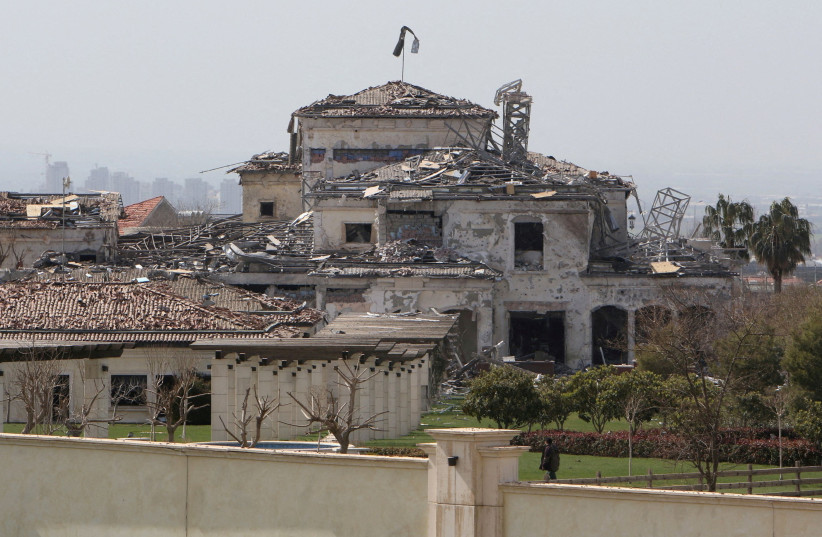WASHINGTON – While the Vienna negotiations on the Iran nuclear deal “could amount to something close to the finish line,” there are still a few outstanding issues, “and when you near the finish line, the issues that are outstanding are the hardest issues,” US State Department spokesman Ned Price said on Monday.
On Saturday, Russian Foreign Minister Sergei Lavrov unexpectedly demanded sweeping guarantees that Russian trade with Iran would not be affected by sanctions imposed on Moscow over its invasion of Ukraine, Reuters reported.
The US stands by the E3 (France, Germany and Britain) statement that “nobody should seek to exploit JCPOA negotiations to obtain assurances that are separate to the JCPOA,” Price said. “We would certainly endorse that statement. We continue to believe that it is profoundly in our national interest to see to it that Iran is permanently and verifiably barred from obtaining a nuclear weapon. We’ve heard from our European allies that they are squarely with us.
“Of course, it does not stand to reason that it would benefit the PRC [People’s Republic of China] or Russia, for that matter, if Iran were in a position to acquire a nuclear weapon. Much to the contrary.”
Asked whether the missile attack over the weekend near Erbil, for which the Islamic Revolutionary Guard Corps claimed responsibility, would affect the calculus of the Vienna talks, Price said Secretary of State Antony Blinken had spoken with Iraqi Prime Minister Mustafa al-Kadhimi and Kurdistan Regional Government Prime Minister Masrour Barzani to “share his outrage and condemnation at the Iranian missile attack near Erbil. These were clear violations of Iraq’s sovereignty.”

Price said that Blinken had also conveyed America’s commitment to work with the Iraqi government and others in the region to hold Tehran accountable.
“The broader point is that Iran poses a threat to our partners in the region, and by extension, [to] us in a number of different ways,” Price said. “And we’ve spoken of Iran’s nefarious activities, going beyond its nuclear advancements and its nuclear provocations. We have seen Iran, of course, fund proxies in the region, fund terrorist groups [and] engaged in malicious cyber activity. But the basic point is that Iran would be able to do all of these things, and potentially more, with far greater impunity if it were not verifiably and permanently constrained from obtaining a nuclear weapon.
“So our focus is on seeing to it that Iran can never obtain a nuclear weapon – that is not something we are going to walk away from. President [Joe] Biden is committed to seeing to it that Iran can never obtain a nuclear weapon.”
